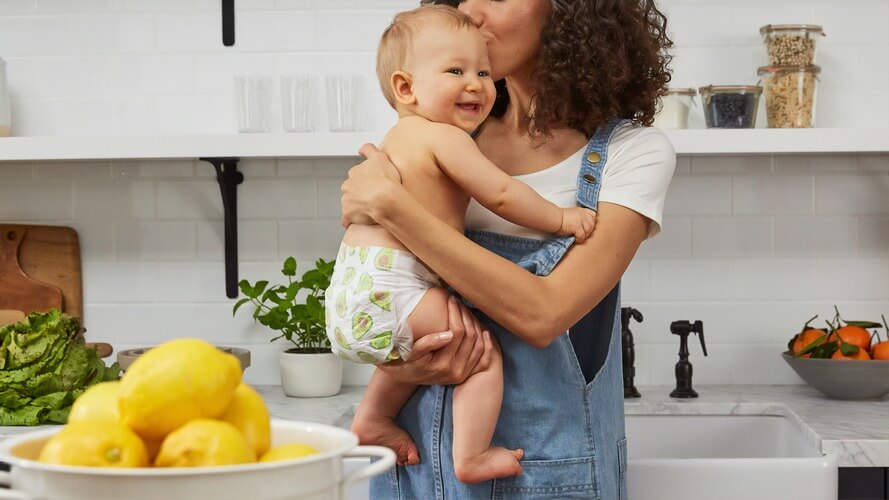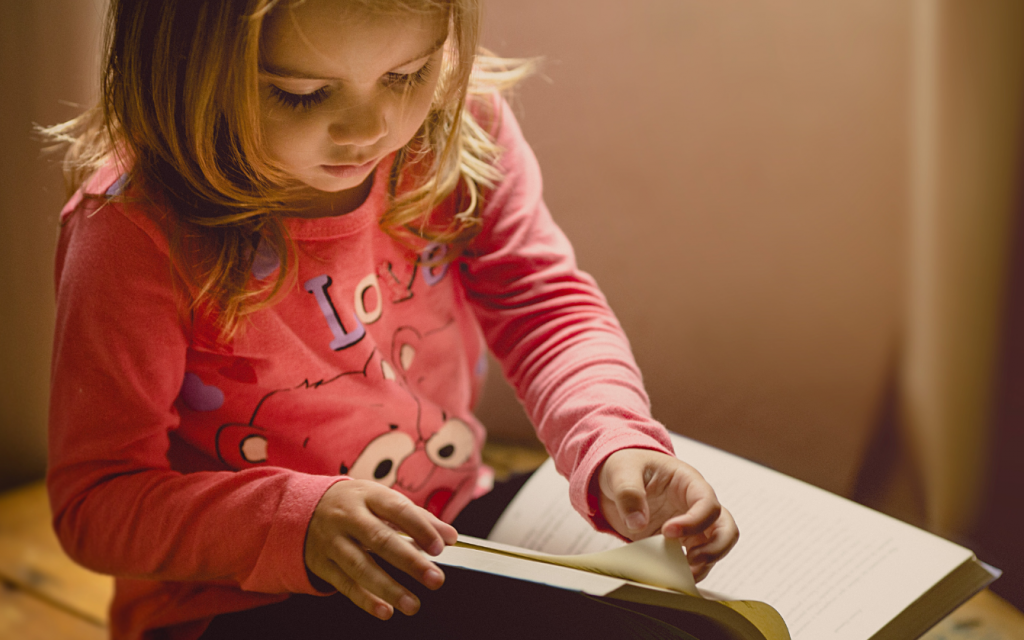Ways To Be a Better Parent: Good Parenting Skills and Tips

As your child develops from a baby and toddler to a schooler and teenager, many things change, but the basic principles remain the same. The good news is, being a good parent is primarily intuitive. However, the structure is also equally critical for the development of your child.
To help you be an awesome parent, we turned to the results of the study and recommendations from the AAP, figured out how not to yell at a child (which is exactly what the ideal parent should not do), asked the author of the ‘The Collapse of Parenting’ Leonard Sax for advice and described how to remain a good parent even in difficult life situations.
Contents:
- Raising Kids Today: Parenting Skills for Keep Up with the Times
- Good Parenting Skills
- Top 6 Ways to be a Better Parent Without Yelling
- Strengths as a Parent in Difficult Times
- Parenting Skills Activities by Age
- FAQ
Raising Kids Today: Parenting Skills for Keep Up with the Times

Prostock-studio/Shutterstock.com
To be successful in a competitive world, children must learn to be honest and have self-control. They must be able to make decisions and function independently yet be kind and empathetic to others. They cooperate with others based on healthy moral principles, behaving appropriately, even in difficult circumstances.
Parents who can instill these abilities and values in their children have done an exceptional job of preparing them for the real world. Children have eight basic needs that a good parent provides to make sure that they have the best chance to thrive and be happy.
- Security. Being safe, warm, and fed are the most basic needs of a child. Consistent security is the foundation of stability and growth.
- Stability. A stable family and community environment give the child a sense of their role and value.
- Consistency. Dealing with consistent values, expectations, emotions, and behavior helps the child develop confidence and balance.
- Emotional support. Being accepted and recognized are important aspects for children to develop trust, respect, and self-esteem.
- Love. A sense of being in a place where one belongs and is accepted is the most profound gift.
- Education. Formal schooling is important to prepare your child to become a productive member of society one day, but life lessons are, in many ways, even more valuable.
- Positive role models. Having the opportunity to look up to and imitate someone with positive qualities gives the child aspiration to develop and become better.
- Structure. Having rules and boundaries provide a child clarity of his or her role and what is expected of them.
Safeguard, educate, and provide clear expectations and a consistent routine to prepare your child to face any challenge and transition successfully through his or her childhood development phases.
Good Parenting Skills

Prostock-studio/Shutterstock.com
As a mom or dad, knowing what skill set to have and how to apply it is a good starting point for effective parenting. The most central factor is time. Every one of the parental skills has one thing in common—time. Spending as much time as possible in your child’s company is an opportunity to invest in all his or her basic needs. Effective parents convey these qualities in the following ways.
- Listens. Observing and listening with attention and understanding let you know what and when your child needs something or has a problem to solve. Encourage your child to express his or her emotions and thoughts. Learn a reflective communication style to clarify what your child is saying by repeating the idea back in different words.
- Honesty and transparency. Tell your child your feelings and expectations and encourage him or her to do the same. This habit will go a long way to prevent conflicts from developing.
- Problem-solving. Engage with your child on a win-win basis and always be fair and objective. Be careful not to let emotions get the better of you. Guide your child to solve his or her problems as much as possible. Ask him or her to suggest solutions rather than prescribe your ideas.
- Respect. Respect for oneself, others, and property is the hallmark of healthy relationships. Share your values with your child and explain what the purpose is. A person who behaves accordingly gains the trust of others.
Guide your child as much as possible rather than prescribe. Let them know your expectations. Show respect and understanding. Encourage talking about their feelings and experiences. Behave toward them in a way that you want to be reciprocated. When children behave badly, it is sometimes a reflection of the example of the parent.
Top 6 Ways to be a Better Parent Without Yelling

Prostock-studio/Shutterstock.com
according to research, yelling makes up one of the 8 discipline strategies that make behavior problems in children worse. The following are additional tips on what makes a better parent without yelling.
Make Fair Rules
Making fair rules helps a child learn what they can and can’t do. Creating clear rules decreases yelling because when a child breaks a rule, everyone understands how and why.
Decide on Consequences
a better parent will decide the consequences their children will face for breaking the rules. The AAP suggests take-away privileges, reduced screen time, time-outs, and other logical consequences instead of yelling.
Establishing consequences for breaking a rule decreases yelling because it helps your child make better decisions.
For example, telling your child they can’t use their smartphone if they don’t put away the dishes after dinner puts the decision in your child’s hands. If they don’t do the chore, you don’t need to yell. As a result, your child simply loses their smartphone for the evening.
Offer Positive Reinforcement
There’s a lot of research about how positive reinforcement is highly beneficial as a parenting skill.
according to a 2018 article published by the APP, ‘striking children, yelling at them or shaming can elevate stress hormones and lead to changes in the brain’s architecture.’ Instead, the APP recommends that ‘adults should reinforce appropriate behaviors, set limits, redirect children and set expectations.’

Prostock-studio/Shutterstock.com
Why Do You Yell?
As a parent, why do you end up yelling at your child?
A better parent asks questions and re-evaluates their actions to learn good parenting skills.
If you struggle with yelling, there’s no shame in taking a deep breath or a time-out. If the situation isn’t dangerous, your child can wait for discipline.
Give Fair Warnings
Use a ‘When . . . Then . . .’ phrase with your child. For example, ‘When you put away your books, then you can play with your tablet this afternoon.’
This statement decreases yelling because you’ve offered your child a fair warning.
Follow Through
A better parent consistently disciplines their children, which is crucial because it helps children to change their behavior (in a positive way).
Follow-through helps children grow and decreases yelling because you teach a small person to think before they act. So if your child breaks a rule, you must enforce the consequences.
Good parenting skills do not necessarily refer to parents who do everything for their child, but, rather, those who use effective parenting to provide a safe and caring space for their kids and guide them through their development. Good parents may not always do everything right but they are always there.
Every good parent should have the Findmykids app on their smartphone to keep the child safe even at a distance! Learn more about the service and start using it today.
Strengths as a Parent in Difficult Times
Learning how to be a better parent is not only important in good times. All families go through difficult patches. It is during these challenging times that you will truly find out what makes a good parent.
When Your Child Has Mental or Emotional Issues

Prostock-studio/Shutterstock.com
Encouraging creativity in a structured environment gives your child the best opportunity to develop into a happy and productive adult. Even then, and despite your best efforts, young kids, or even older child, can develop mental or emotional issues.
according to the CDC, almost 10 percent of children between 2- and 17 years old are diagnosed with Attention Deficit Hyperactivity Disorder or ADHD. More than 7 percent have a diagnosed behavioral problem or anxiety while more than 3 percent in the same age group have received a depression diagnosis.
Some of these conditions often occur together, which intensifies the effects and complicates treatment. Viewed together with the fact that even more children with mental health issues are undiagnosed and untreated, which has negative consequences on their health and development, the situation needs attention.
- The first line of care and the most important foundation of a child’s mental health is at home. When your child is consistently sad or withdrawn, threatens or tries to hurt themselves, has sudden, overwhelming fears, is uncontrollable or takes risks, or has severe mood swings it is possible that he or she suffers from a mood or behavioral disorder.
- If their behavior suddenly changes or there are signs of alcohol or drug use, a parent must be alert. A child with such difficulty concentrating or staying still that it interferes with their functioning in school or with daily tasks possibly has ADHD.
- If you observe any of these patterns, talk to your child to find out what he or she has difficulty with, or if anything is bothering him or her. Seek out a family therapist or other professional if needed.
- And when seeking out a medical professional, it’s also crucial to ask questions about any medication prescribed, whether you have a small child or older children.
according to Leonard Sax, MD, Ph.D., (The Collapse of Parenting), many parents don’t know just how common it is in the United States for medical professionals to prescribe powerful psychiatric drugs to children as a ‘first resort rather than a last resort.’ As a result, ‘American kids are now factors of ten more likely to be on medication compared with kids outside North America.’ And, ‘We are experimenting on children in a way which has no precedent, with medications whose long-term risks are largely unknown.’
Your family life is paramount, and you want your child to grow into a successful adult. However, parents must stay alert for sudden behavior changes and act quickly to provide the support children need to handle mental health issues.
How to be a Good Parent During Divorce

Prostock-studio/Shutterstock.com
although a stable and loving two-parent home is widely considered the best circumstance for a child to grow up, unfortunately, this is not always the reality. Almost half of all marriages in the United States end in divorce or separation after a median duration of just under eight years. This means that, in many cases, young children are affected.
Focusing on good parenting skills or a good parenting style during a divorce is more important than ever.
Evidence from a study called Family Structure Transitions and Child Development: Instability, Selection, and Population Heterogeneity by Dohoon Lee and Sara McLanahan showed that separation and divorce are linked to an increased risk for adjustment problems in children and adolescents, including, lower grades, school dropout, conduct problems, substance use problems, and depressed mood.
Being a better parent during a divorce ensures your children are better prepared to cope with divorce-related stress.
Try to set your hurt and anger aside for the benefit of the kids and go out of your way to make them feel loved, accepted, and valuable, and that they belong in both your and your partner’s lives.
- Be as consistent as possible.
- Always strive to be a good example of responsibility and respect.
- Separate your feelings from behavior. In other words, don’t take your pain out on the child.
- Be extra vigilant for clues that your child is struggling emotionally or performance-wise.
- Regularly talk to your kid. Improve your communication with your partner and separate disagreements from discussions about what is best for your kid.
How to Be a Good Parent After Divorce

Prostock-studio/Shutterstock.com
Parents don’t have all the answers, and raising children in today’s digital world creates additional challenges. However, after a divorce, it’s even more crucial to lean into being a better parent for the sake of your kids.
a 2014 study called The Impact of Family Structure on the Health of Children: Effects of Divorce revealed that many kids feel less close to their fathers after a divorce. Another study, Mothers and their children after divorce: Report from a 25-year longitudinal study, showed that mothers could be less affectionate and supportive after a divorce. Discipline also becomes less effective and consistent.
As a result, to be a better parent after divorce, it’s a good idea to develop household rules and offer appropriate discipline when needed.
Even if you now have separate lives, encourage your child to spend time with and maintain a close relationship with your ex-partner. Although shared responsibilities, coordination, and decision-making can be difficult and exhausting, parents who provide guidance to their kids have the best chance at happiness and success.
- Make sure that your arrangements are consistent and unexpected things are kept to the minimum. This will help make your kid feel cared for and secure.
- Peaceful cooperation with your ex-partner will teach your kid the value of compromise and joint problem-solving.
- It is important to separate the feelings of hurt and anger that you may have from your behavior in front of your child. Don’t involve your child in any disagreement or conflict.
- Focus on regular, good communication with your ex-partner. Make joint decisions that affect your child. Try to function as a team and support one another when it comes to the well-being of the kids.
- Resolve issues quickly. Compromise. Don’t let the small stuff get in the way and escalate. Always do what is best for your child.
Parenting Skills Activities by Age
Parenting style and decisions change along with the child’s development. The needs and expectations of your baby and toddler differ from those of your schooler and teen. As their interaction with the world expands, their maturity level increases. You should always gauge and balance their maturity level and ability to handle responsibility with the autonomy and freedom that you allow them to have.
Infants

Prostock-studio/Shutterstock.com
Infants have very basic needs and they have not yet developed the distinction between themselves and their environment. They require warmth, rest, safety, nourishment and time to establish a bond with their primary caretaker. Their main developmental tasks are to learn to eat, sleep, and become used to their bodies and interaction with others. They are starting to develop trust. Therefore, as a parent, you should:
- Establish a routine of feeding, sleep, and caressing
- Learn how to comfort your baby for the best results
- Look after yourself and get sleep and rest when you can
- Relax and enjoy your baby by not focusing on small issues
All too soon, your baby will become a toddler and he or she will start to move around more, explore, and interact.
Toddlers

Prostock-studio/Shutterstock.com
At the age of around one to two years, toddlers start to learn to walk and talk. Discovering more of the environment and people around them, toddlers become more autonomous and cautiously test their independence. However, they are still self-centered and can be quite stubborn. At this age, their language and physical skills develop quickly. They learn to navigate rules in their world.
- Support your toddler’s attempts to be more independent
- Allow him or her to develop a sense of mastery
- Set limits to ensure their safety and your well-being
- Show that you tolerate his or her anger and other emotions
- Try to see things from your toddler’s perspective
- Keep your child safe during their explorations
- Encourage his or her curiosity
Preschoolers

Prostock-studio/Shutterstock.com
Between the ages of about three and five, your preschooler becomes slightly less self-centered, more aware of his or her place in the world, and starts learning to manage their emotions and behavior. Their social skills develop quickly, which set the basis for when they venture into the world and go to school. They are experiential learners and test the boundaries of their bodies and minds.
To set your preschooler on the right path, you should:
- Teach by demonstrating empathy and talking about feelings
- Continue to create a routine in his or her daily life, which is comforting as your preschooler discovers new things that can be scary to them
- Ensure that he or she gets sufficient rest and sleep
- Monitor what food is available but allow your preschooler to decide how much to eat—provide smaller, regular meals or snacks to prevent consistent and unhealthy eating.
- Listen reflectively to your kid on a regular basis. Ask him or her to describe their experiences and feelings.
- Set limits but empathize when they are disappointed—teach self-discipline rather than enforced punishment.
- Interact regularly with your child and create social time.
Schoolers

Prostock-studio/Shutterstock.com
In your child’s school and preteen years, they become less self-centered, more attuned to others, and (usually) more caring and cooperative. In their formative years, schooler needs guidance to develop emotional intelligence and self-regulation skills more than ever.
- Utilize these typically reasonable years to cement your relationship and let your child develop his or her unique identity.
- Balance your child’s need for self-sufficiency, interaction with peers, and making time to spend quality moments with him or her
- Plan regular family outings or events to cultivate strong connections
- Gage your kid’s maturity and need for independence—balance rules and accommodations accordingly
- Listen attentively to your kid and encourage sharing problems
- Let them come up with potential solutions and teach them to negotiate and compromise
- Recognize and praise their strengths and accomplishments
- Limit the use and reliance on electronic devices to specific times of day
- Know your child’s friends, relationships, and values
- Don’t get involved in power struggles and act firm rather than punishing
Teenagers

Prostock-studio/Shutterstock.com
In your child’s early teens, between 13- and 15 years, expect variable behavior and emotions as they try to settle into independence. At this point, he or she has developed a personality but may still be trying to find a stable identity.
The outside world has an increasing influence on your teen as they navigate peer relationships, look up to role models, and widen their exposure through social media and school, sports, and other events.
At this stage, the focus of the parent is on demonstrating respect and positive values, managing your own emotions, balancing freedom with responsibility, and communicating regularly.
- Continue to schedule regular conversations to check in every day
- Allow freedom appropriately but know what your teenager is doing, where, and with whom
- Eat as many meals together as possible, especially at dinnertime
- Demonstrate and encourage healthy self-care, including meals, sleep, and relaxation
- Support your teen as much as you can to strive for and achieve their goals
- Act more than a parent than a friend—guide, be firm, and offer support
- Keep computers in a family space
- Continue to have regular family meetings and outings
Remember that engagement with your child—whatever his or her age—is the critical component in their development. As a baby or toddler, this means physical contact and care. When your child grows older, communication about their experiences and emotions becomes like a light to guide them to confidence.
Listening reflectively, talking about emotions, establishing boundaries and structure, and balancing independence with responsibility are very important too. Notice changes in your child’s behavior. Monitor their activities online and in the real world.
Set appropriate safeguards on social media. When your child is old enough to have a smartphone, install an app like Findmykids so that you know where they are when you’re worried. It will give you valuable peace of mind so that you can allow them more leeway to explore their independence while also staying safe and protected.

Prostock-studio/Shutterstock.com
FAQ
Do you still have questions about how to be an awesome parent? Here are some commonly asked questions and answers.
What Age is Hardest to Parent?
according to a survey, most of the 2000 parents interviewed agreed that age eight is the most difficult to parent.
And there’s a good reason for this!
In 2013, BMC Pediatrics published the results of a study titled Study protocol: the Childhood to Adolescence Transition Study (CATS). The study determined that children between the ages of 6 to 8 receive an increase in Adrenal Androgens. In other words, the hormones eventually become responsible for puberty (a few years later).
Can Parenting Skills be Learned, or are They Innate?
When it comes to parenting, everyone brings a different set of innate parenting skills to the table. However, as every parent will come to learn, a specific set of parenting skills will only work for some children.
This means there’s no such thing as the perfect parent. Every awesome parent learns the skills, tips, and tricks they need to become better parents.
How Can Parents Encourage Their Children’s Independence and Autonomy?
The simplest way parents can help their children become more independent is to allow them to attempt different tasks and activities on their own. Keep in mind it’s important to give age-appropriate tasks to your kids. Be sure to keep their development stage in mind.
While giving children a chance to try new things, parents can further encourage independence and autonomy by praising accomplishments. Avoid belittling children, as this does not promote healthy self-esteem and is more damaging than helpful.
What are Some Common Mistakes that Parents Make, and How Can They Avoid Them?
The key thing to remember is that there’s no such thing as the perfect parent. Awesome parents strive to continuously learn how to improve their skills to best help their children navigate each stage of life.
However, there are some common mistakes parents make. The good news is knowing about these mistakes will help you avoid them.
- Be Flexible. Try different tools, tips, and skills to see how your child responds best
- Do not spank your child. This 2016 study shows a direct link between aggressive behaviors in children and spanking
- Explain why bad behavior isn’t tolerated. It’s not enough to admonish or punish your child. They need to know what’s ‘bad’ about their actions
- Set rules and be consistent with discipline. Follow through!
- Know your own needs and limit
Проверьте электронный ящик



















